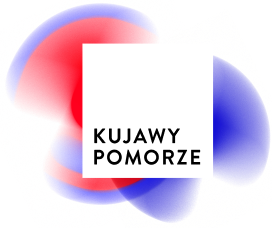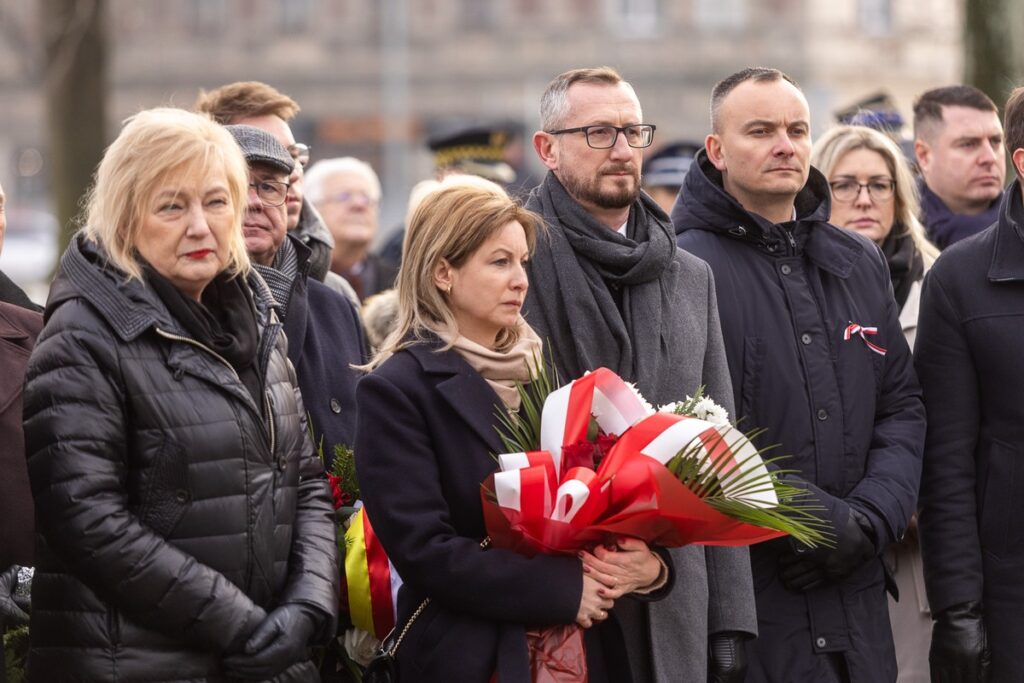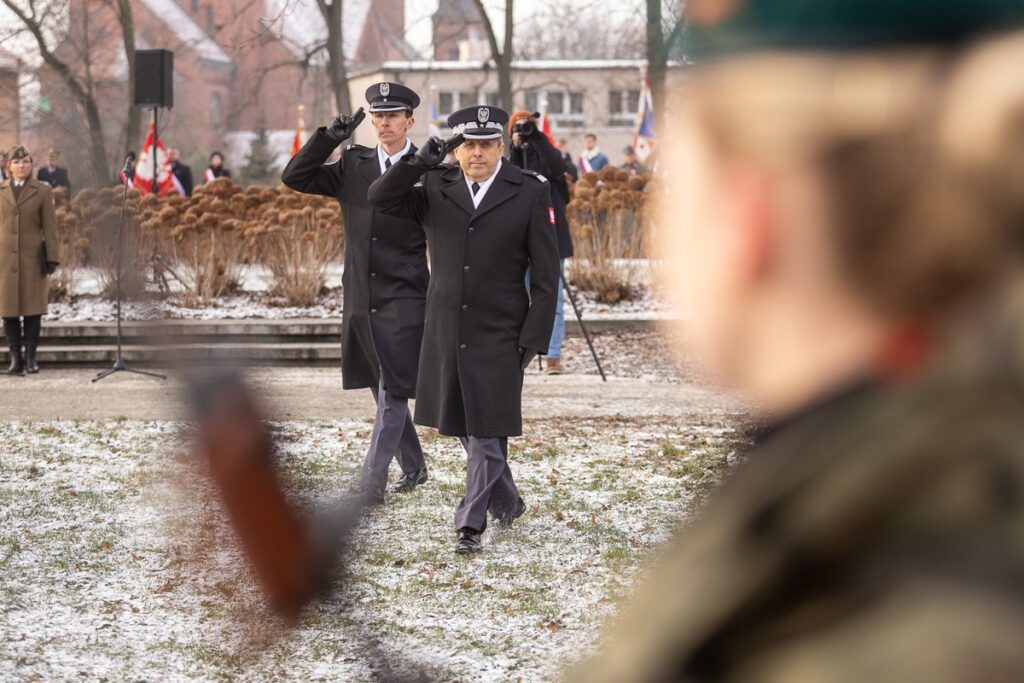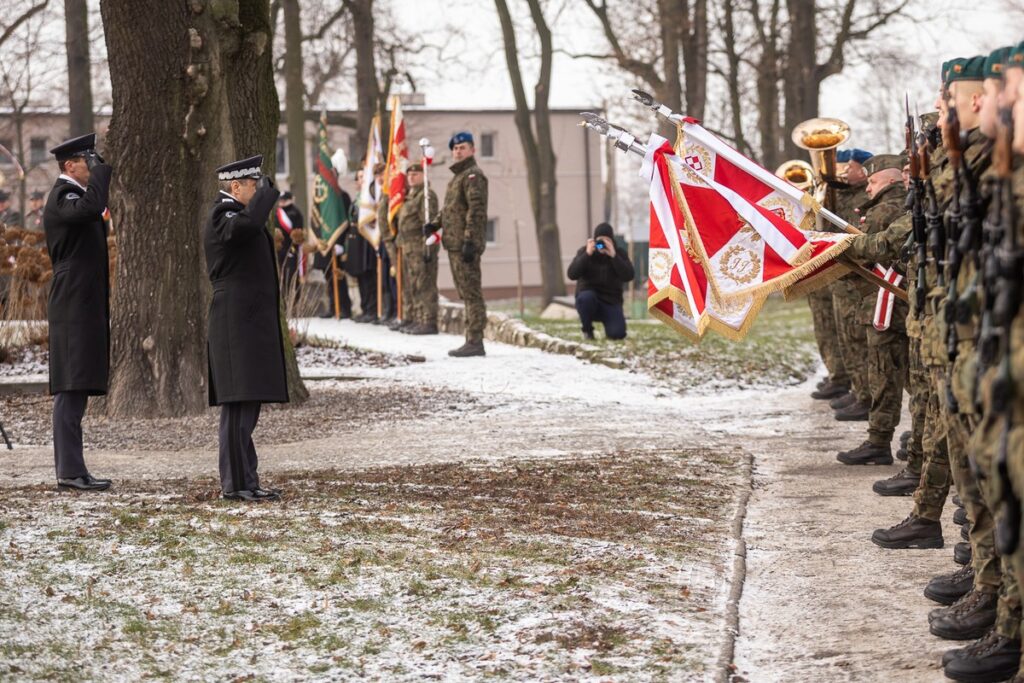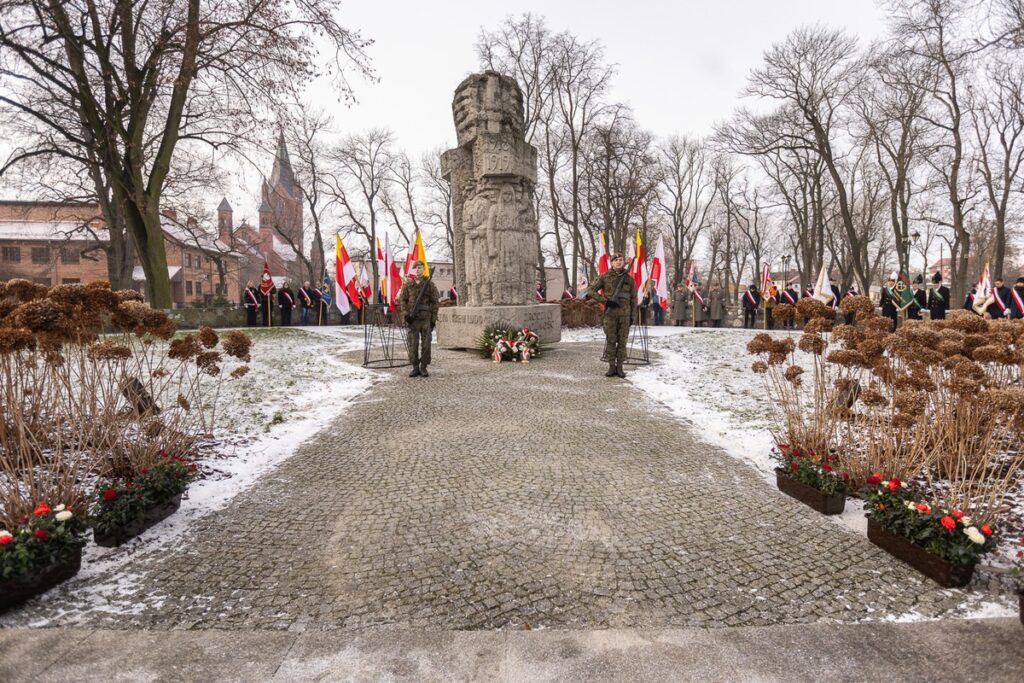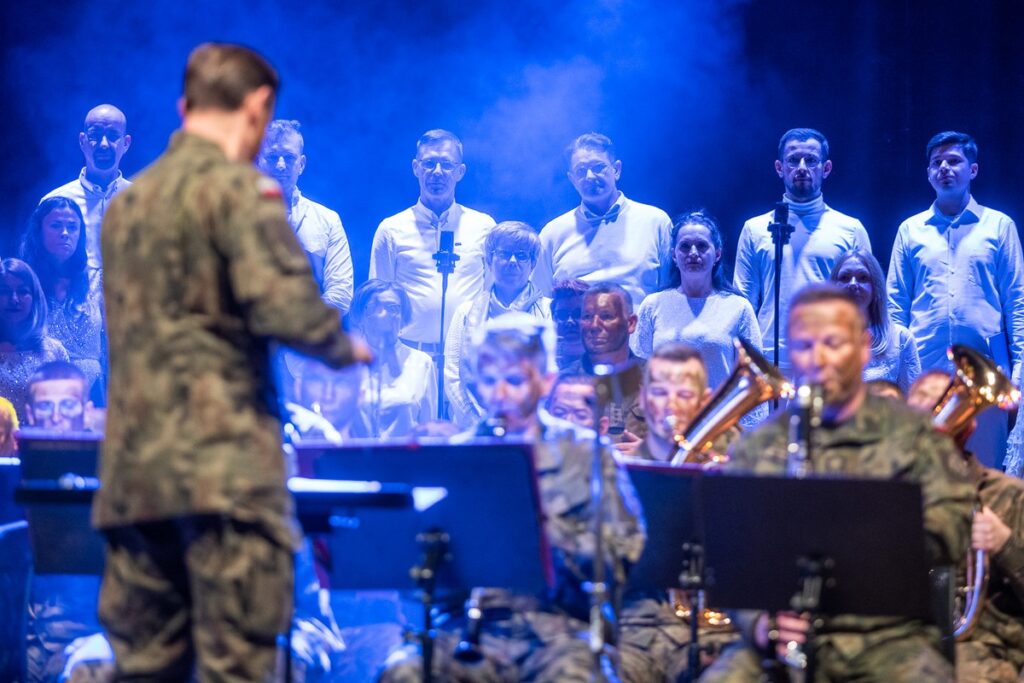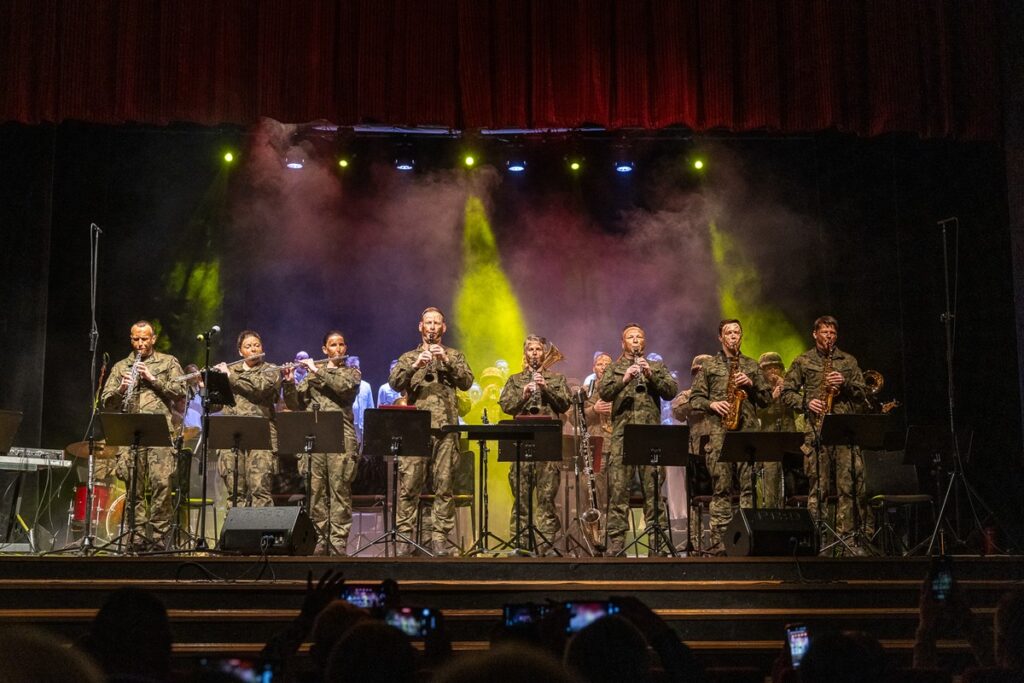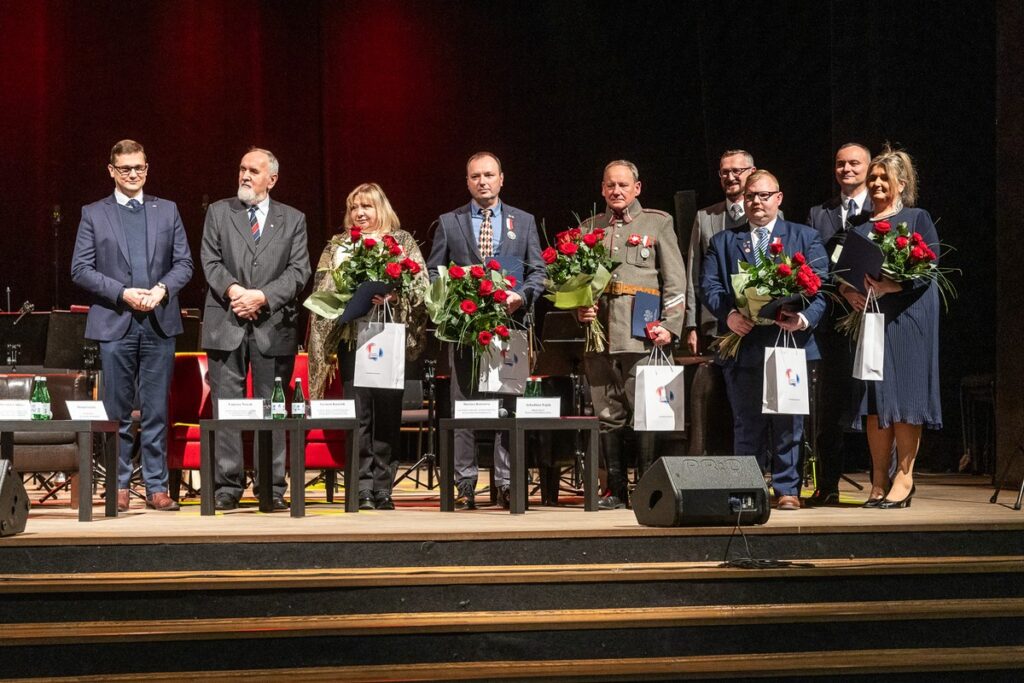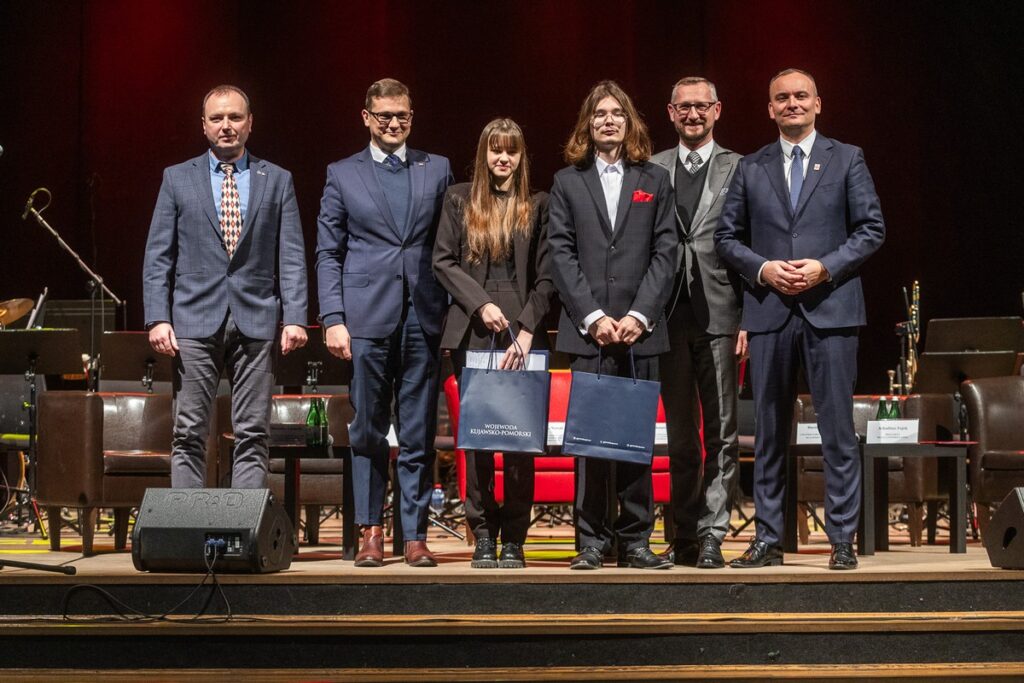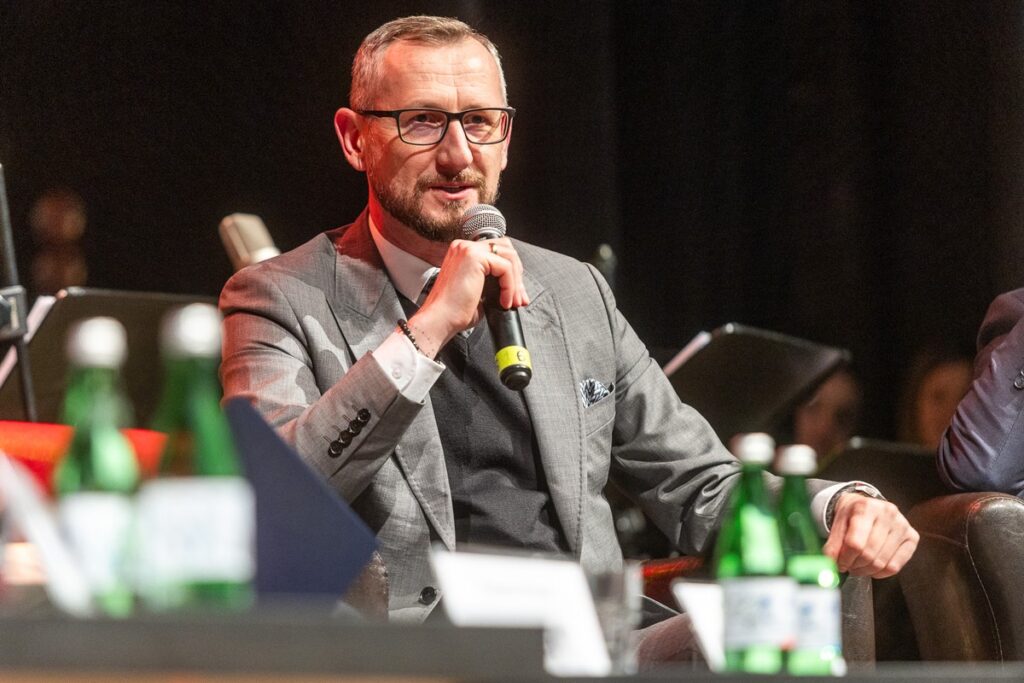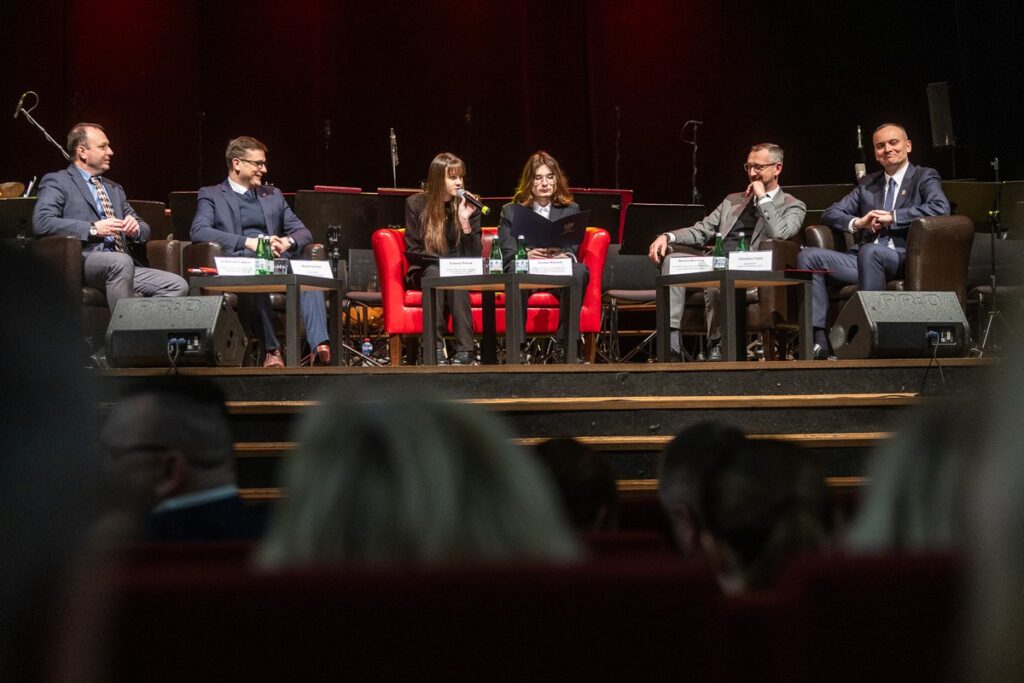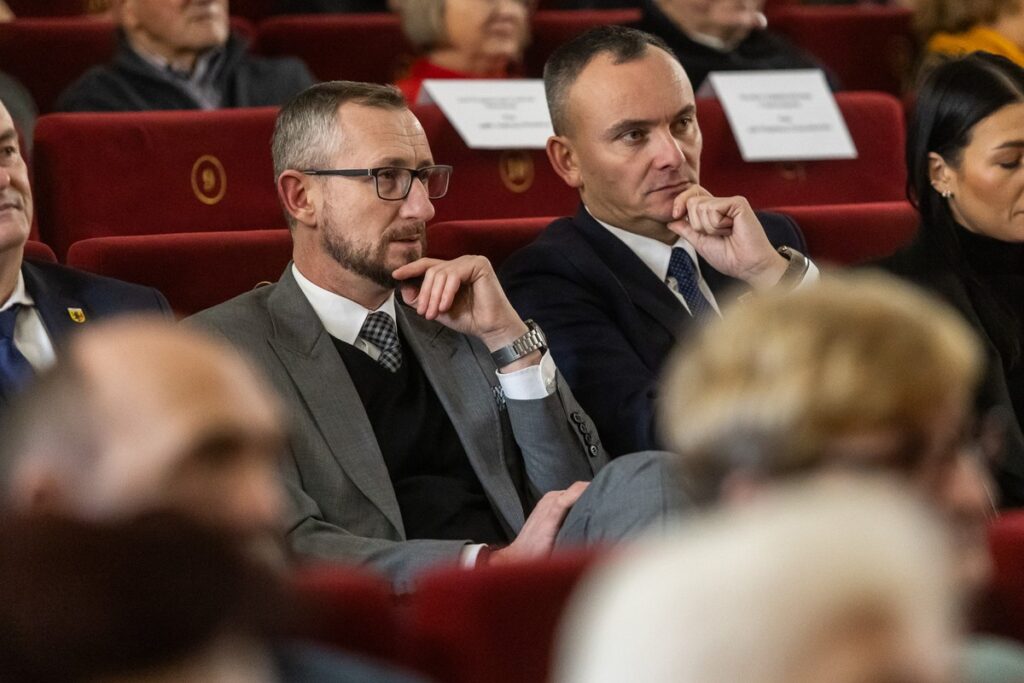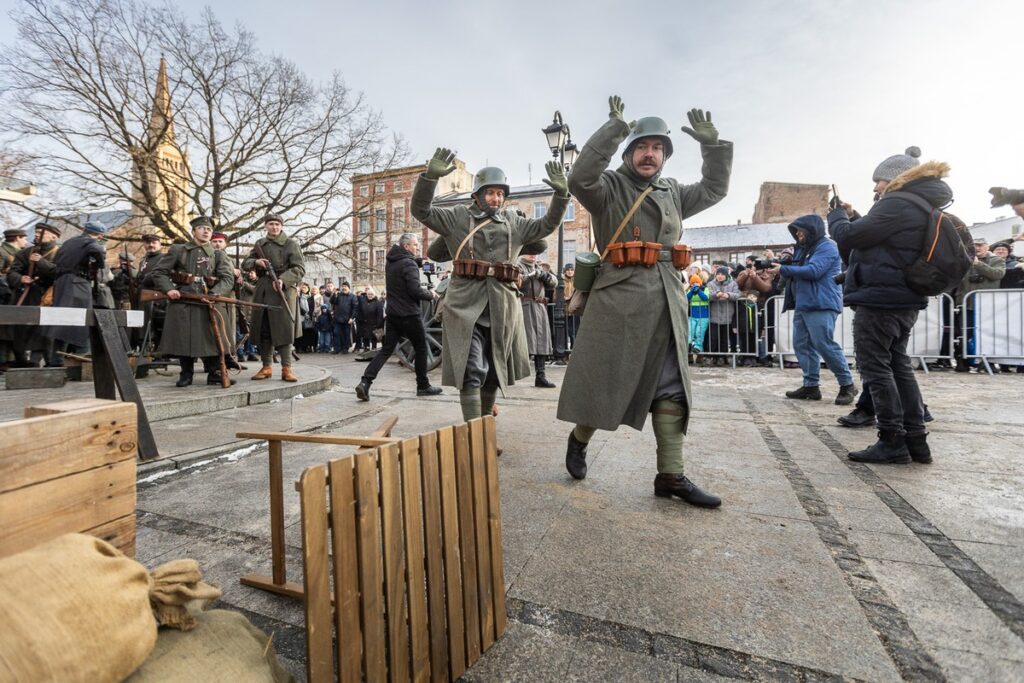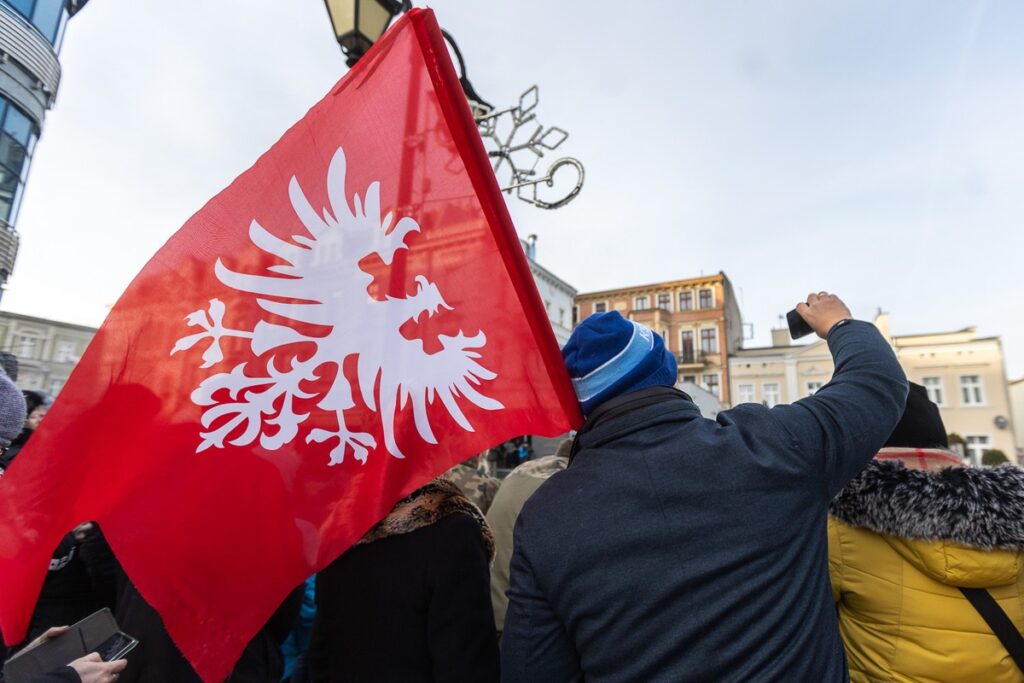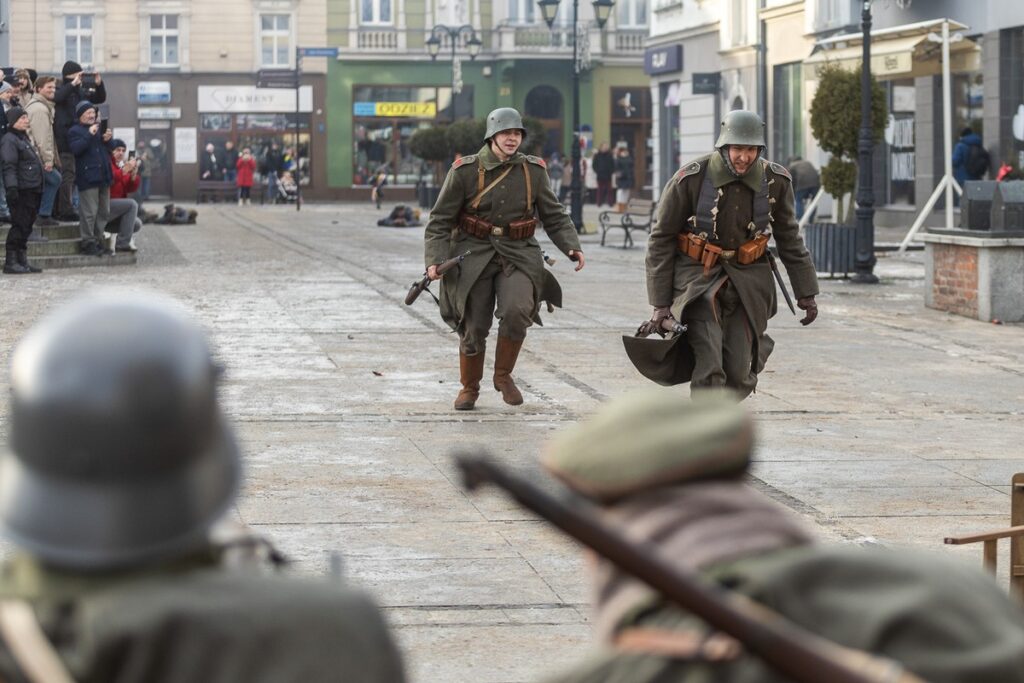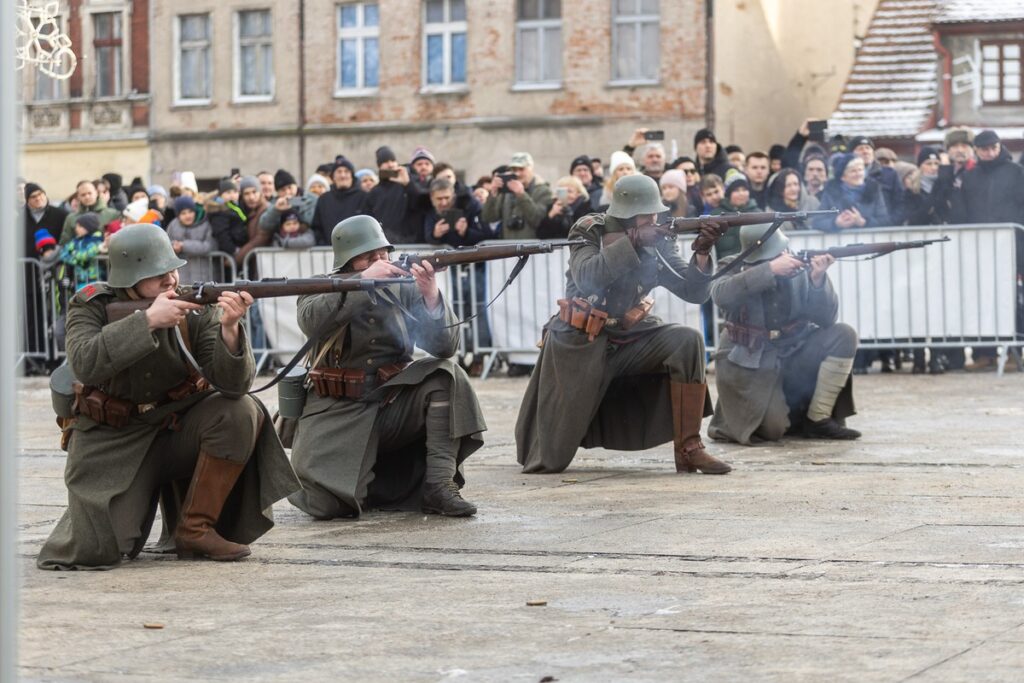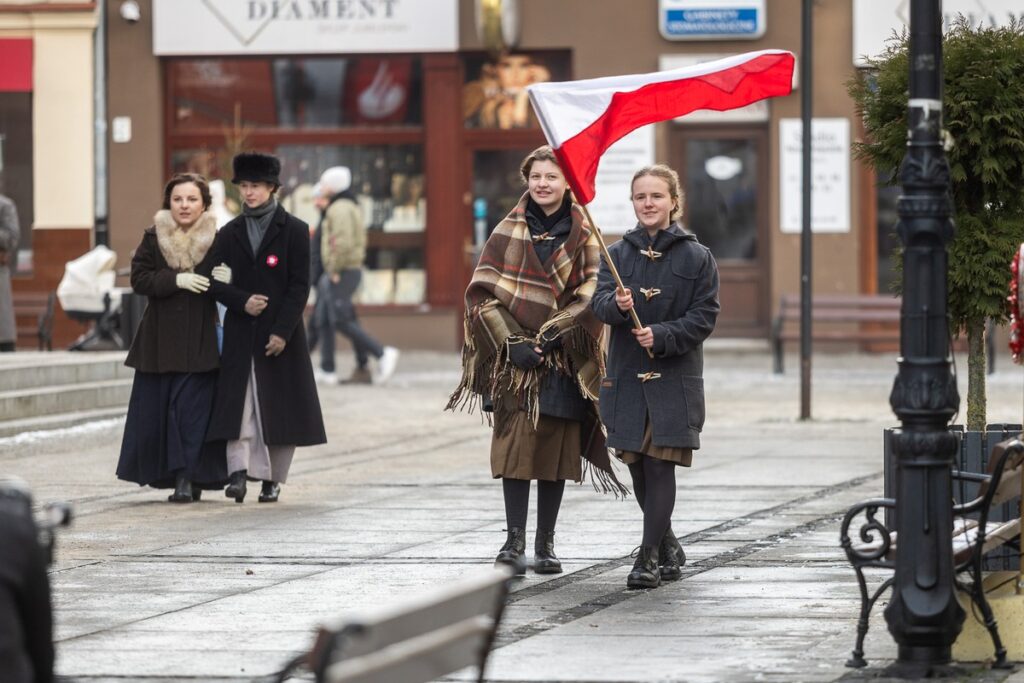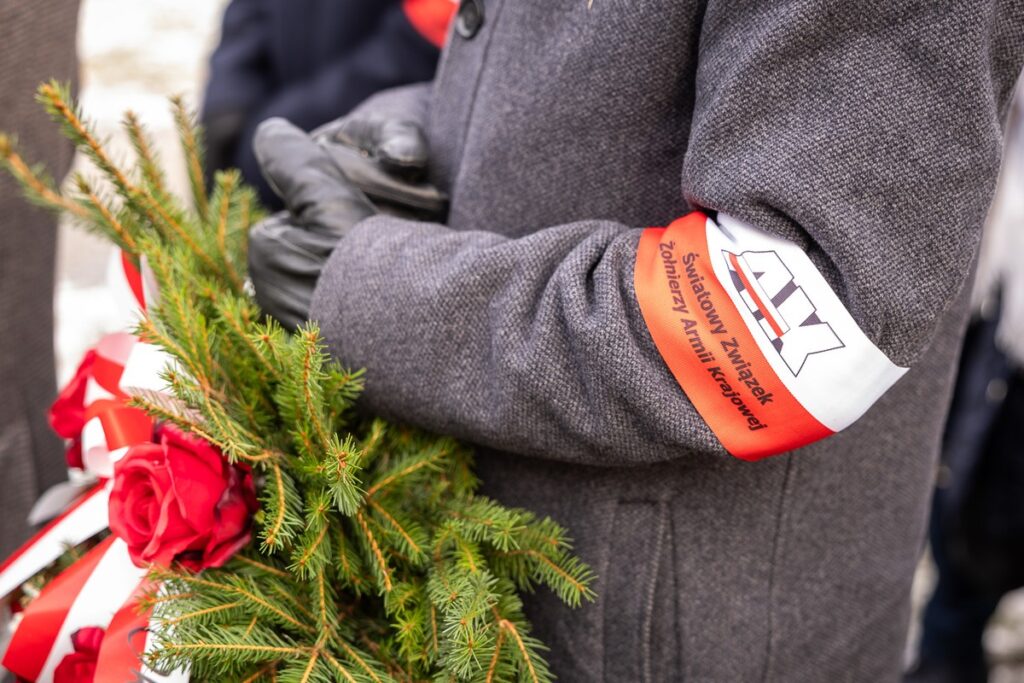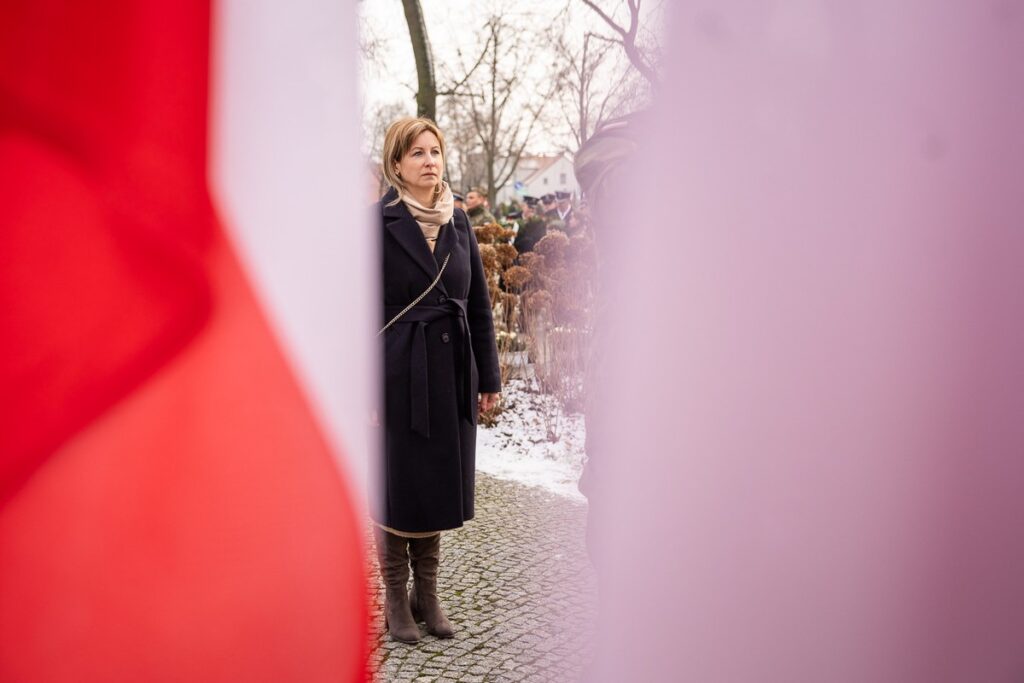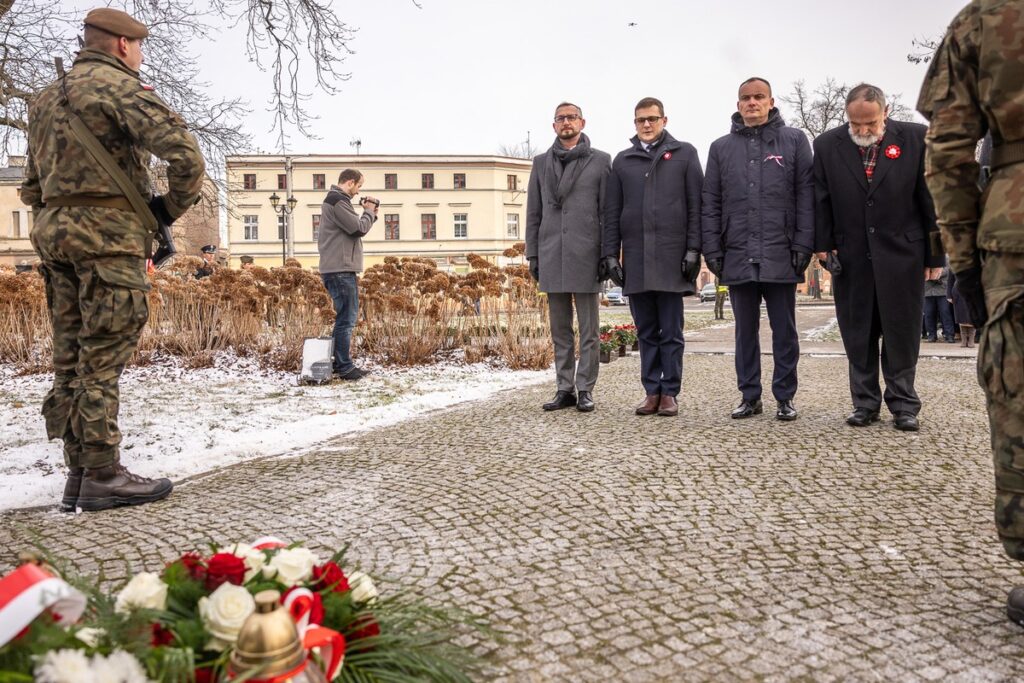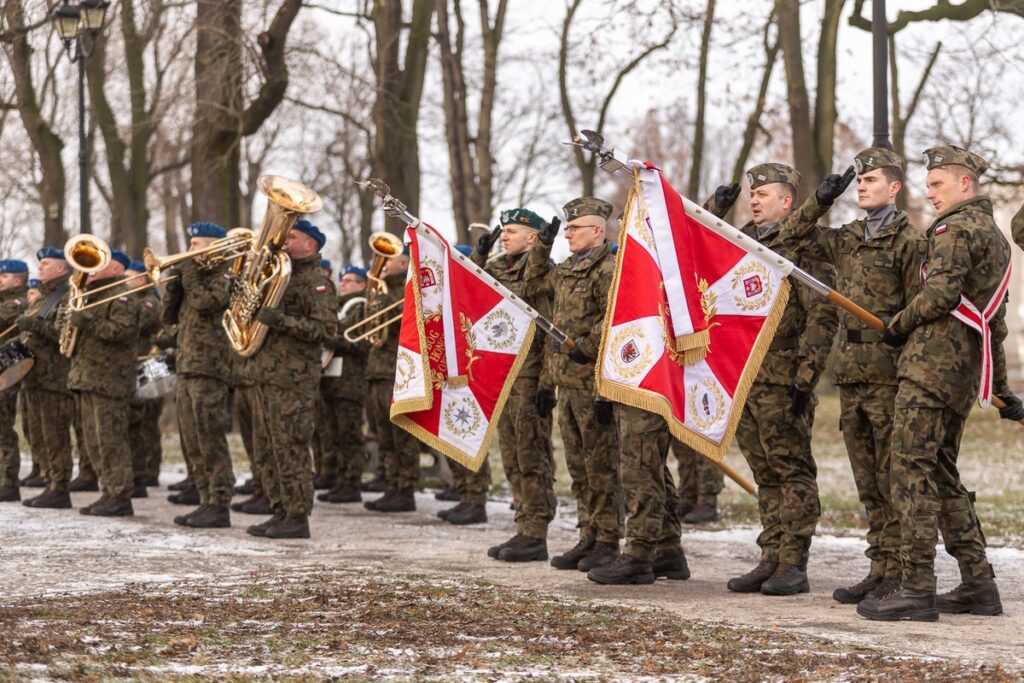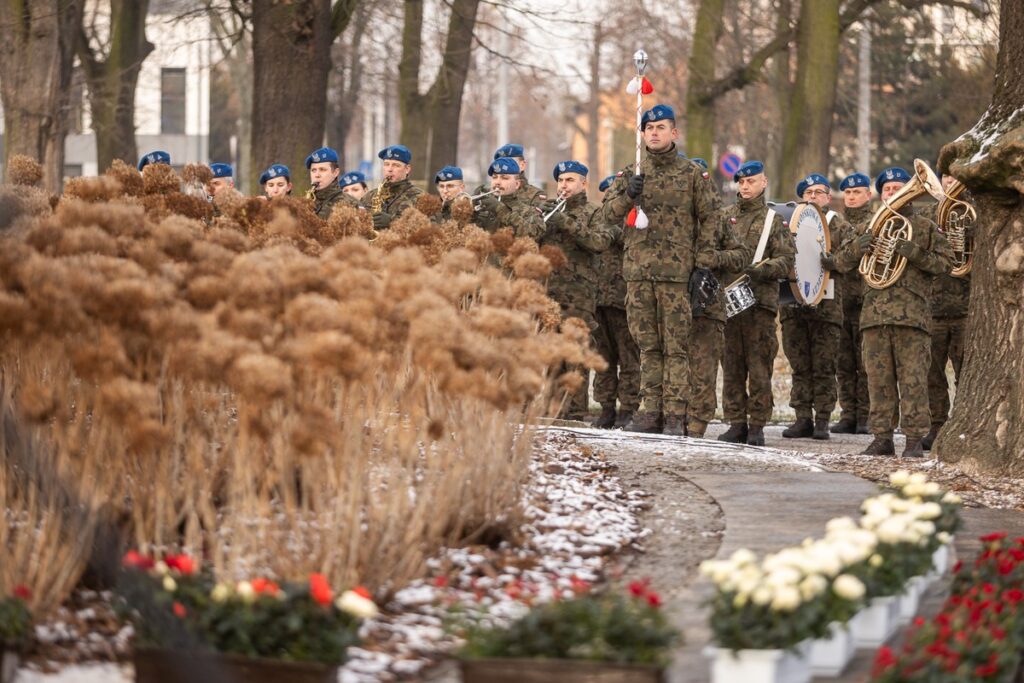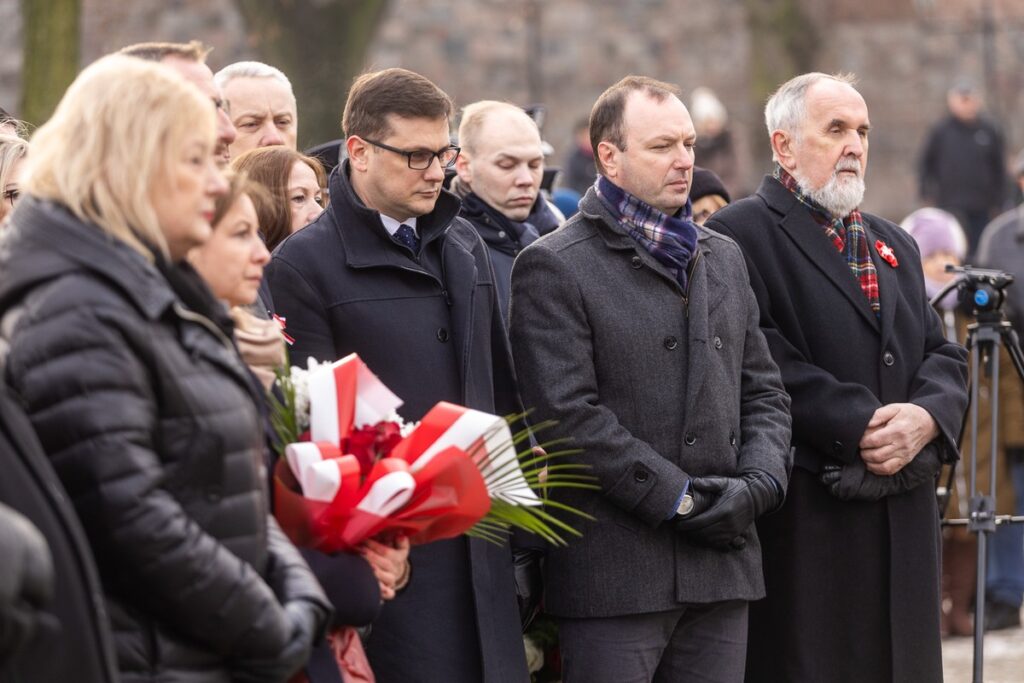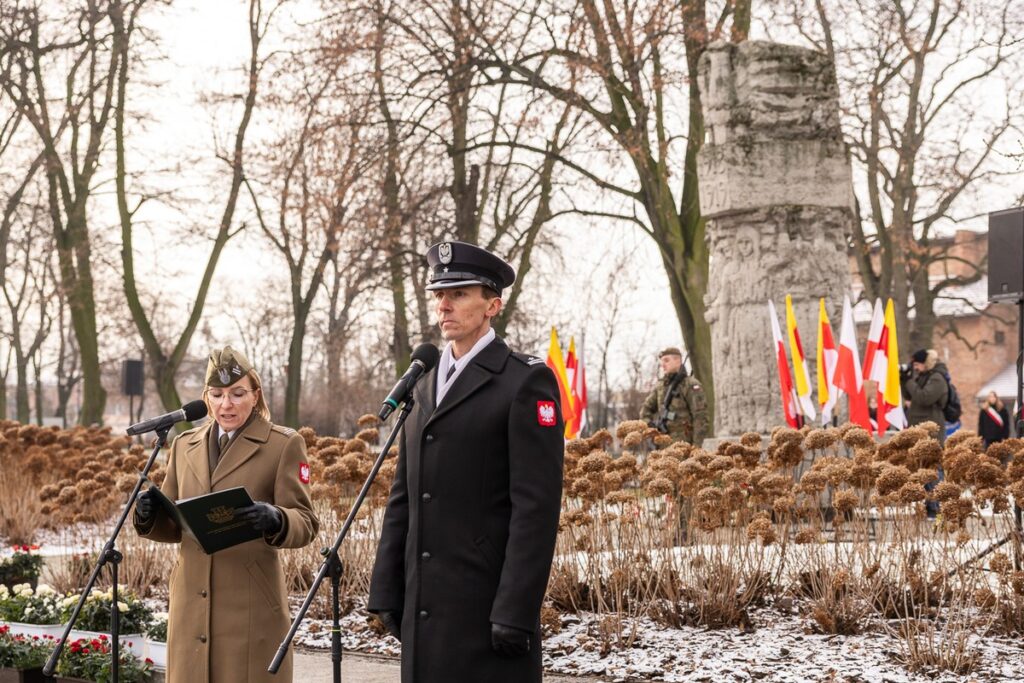
We celebrate the National Day of the Victorious Greater Poland Uprising
Following the December commemoration of the National Day of the Victorious Greater Poland Uprising in Bydgoszcz, regional celebrations were held on Sunday (January 5) in Inowrocław, with the participation of Dariusz Kurzawa, a Member of the Regional Executive Board.
“Here, the people of Greater Poland, Kujawy, and Pałuki won their freedom with the sword, and here we bow our heads before these heroes,” said Dariusz Kurzawa.
The Inowrocław ceremonies began with a flower-laying ceremony at the Monument to the Greater Poland Insurgent, followed by reenactment group presentations and a gala in the municipal theater that included a concert by a military orchestra. The events were preceded by a mass for the homeland at the basilica in Inowrocław.
“By honoring the heroic people of Greater Poland, we emphasize that we in Kujawy and Pomorze regard the Greater Poland Uprising as part of our shared Polish path to freedom,” emphasized Vice-Marshal Zbigniew Ostrowski, who represented the Regional Self-Government during the Bydgoszcz commemoration. These events took place on December 27 at the garrison church and the Monument to the Unknown Greater Poland Insurgent.
“We have a duty to remember that there is such a thing as the ethos of serving Poland! May we not lack patience and humility in this service, and may we unite both in the face of threats and in times when we must build the foundations of our nation’s success together. Today, we build upon the foundations left to us by our predecessors,” said Vice-Marshal Zbigniew Ostrowski during his Bydgoszcz speech.
After Poland regained independence in November 1918, the territories of the Prussian partition remained under German control. The visit of the renowned pianist and future Prime Minister Ignacy Jan Paderewski to Poznań inspired the people of the Greater Poland capital to assert their Polish identity. In response to German provocations and counter-demonstrations, street clashes erupted on December 27, 1918, quickly spreading across almost the entire former Province of Poznań. From the outset, fierce fighting also took place in Pałuki, western Kujawy, and Krajna. The armistice signed in Trier in February 1919 did not halt the hostilities. It was only the Treaty of Versailles in June 1919 that granted Poland most of the Greater Poland portion of the former Prussian partition.
Beata Krzemińska
Spokesperson of the Marshal’s Office
January 5, 2025
Last updated: January 8, 2025
- Wojewódzkie obchody Narodowego Dnia Zwycięskiego Powstania Wielkopolskiego, 5 stycznia 2025, Inowrocław, fot. Szymon Zdziebło/tarantoga dla UMWKP
- Wojewódzkie obchody Narodowego Dnia Zwycięskiego Powstania Wielkopolskiego, 5 stycznia 2025, Inowrocław, fot. Szymon Zdziebło/tarantoga dla UMWKP
- Wojewódzkie obchody Narodowego Dnia Zwycięskiego Powstania Wielkopolskiego, 5 stycznia 2025, Inowrocław, fot. Szymon Zdziebło/tarantoga dla UMWKP
- Wojewódzkie obchody Narodowego Dnia Zwycięskiego Powstania Wielkopolskiego, 5 stycznia 2025, Inowrocław, fot. Szymon Zdziebło/tarantoga dla UMWKP
- Wojewódzkie obchody Narodowego Dnia Zwycięskiego Powstania Wielkopolskiego, 5 stycznia 2025, Inowrocław, fot. Szymon Zdziebło/tarantoga dla UMWKP
- Wojewódzkie obchody Narodowego Dnia Zwycięskiego Powstania Wielkopolskiego, 5 stycznia 2025, Inowrocław, fot. Szymon Zdziebło/tarantoga dla UMWKP
- Wojewódzkie obchody Narodowego Dnia Zwycięskiego Powstania Wielkopolskiego, 5 stycznia 2025, Inowrocław, fot. Szymon Zdziebło/tarantoga dla UMWKP
- Wojewódzkie obchody Narodowego Dnia Zwycięskiego Powstania Wielkopolskiego, 5 stycznia 2025, Inowrocław, fot. Szymon Zdziebło/tarantoga dla UMWKP
- Wojewódzkie obchody Narodowego Dnia Zwycięskiego Powstania Wielkopolskiego, 5 stycznia 2025, Inowrocław, fot. Szymon Zdziebło/tarantoga dla UMWKP
- Wojewódzkie obchody Narodowego Dnia Zwycięskiego Powstania Wielkopolskiego, 5 stycznia 2025, Inowrocław, fot. Szymon Zdziebło/tarantoga dla UMWKP
- Wojewódzkie obchody Narodowego Dnia Zwycięskiego Powstania Wielkopolskiego, 5 stycznia 2025, Inowrocław, fot. Szymon Zdziebło/tarantoga dla UMWKP
- Wojewódzkie obchody Narodowego Dnia Zwycięskiego Powstania Wielkopolskiego, 5 stycznia 2025, Inowrocław, fot. Szymon Zdziebło/tarantoga dla UMWKP
- Wojewódzkie obchody Narodowego Dnia Zwycięskiego Powstania Wielkopolskiego, 5 stycznia 2025, Inowrocław, fot. Szymon Zdziebło/tarantoga dla UMWKP
- Wojewódzkie obchody Narodowego Dnia Zwycięskiego Powstania Wielkopolskiego, 5 stycznia 2025, Inowrocław, fot. Szymon Zdziebło/tarantoga dla UMWKP
- Wojewódzkie obchody Narodowego Dnia Zwycięskiego Powstania Wielkopolskiego, 5 stycznia 2025, Inowrocław, fot. Szymon Zdziebło/tarantoga dla UMWKP
- Wojewódzkie obchody Narodowego Dnia Zwycięskiego Powstania Wielkopolskiego, 5 stycznia 2025, Inowrocław, fot. Szymon Zdziebło/tarantoga dla UMWKP
- Wojewódzkie obchody Narodowego Dnia Zwycięskiego Powstania Wielkopolskiego, 5 stycznia 2025, Inowrocław, fot. Szymon Zdziebło/tarantoga dla UMWKP
- Wojewódzkie obchody Narodowego Dnia Zwycięskiego Powstania Wielkopolskiego, 5 stycznia 2025, Inowrocław, fot. Szymon Zdziebło/tarantoga dla UMWKP
- Wojewódzkie obchody Narodowego Dnia Zwycięskiego Powstania Wielkopolskiego, 5 stycznia 2025, Inowrocław, fot. Szymon Zdziebło/tarantoga dla UMWKP
- Wojewódzkie obchody Narodowego Dnia Zwycięskiego Powstania Wielkopolskiego, 5 stycznia 2025, Inowrocław, fot. Szymon Zdziebło/tarantoga dla UMWKP
- Wojewódzkie obchody Narodowego Dnia Zwycięskiego Powstania Wielkopolskiego, 5 stycznia 2025, Inowrocław, fot. Szymon Zdziebło/tarantoga dla UMWKP
- Wojewódzkie obchody Narodowego Dnia Zwycięskiego Powstania Wielkopolskiego, 5 stycznia 2025, Inowrocław, fot. Szymon Zdziebło/tarantoga dla UMWKP
- Wojewódzkie obchody Narodowego Dnia Zwycięskiego Powstania Wielkopolskiego, 5 stycznia 2025, Inowrocław, fot. Szymon Zdziebło/tarantoga dla UMWKP
- Obchody Narodowego Dnia Zwycięskiego Powstania Wielkopolskiego, Bydgoszcz 27 grudnia 2024, fot. Tomasz Czachorowski/eventphoto
- Obchody Narodowego Dnia Zwycięskiego Powstania Wielkopolskiego, Bydgoszcz 27 grudnia 2024, fot. Tomasz Czachorowski/eventphoto
- Obchody Narodowego Dnia Zwycięskiego Powstania Wielkopolskiego, Bydgoszcz 27 grudnia 2024, fot. Tomasz Czachorowski/eventphoto
- Obchody Narodowego Dnia Zwycięskiego Powstania Wielkopolskiego, Bydgoszcz 27 grudnia 2024, fot. Tomasz Czachorowski/eventphoto
- Obchody Narodowego Dnia Zwycięskiego Powstania Wielkopolskiego, Bydgoszcz 27 grudnia 2024, fot. Tomasz Czachorowski/eventphoto
- Obchody Narodowego Dnia Zwycięskiego Powstania Wielkopolskiego, Bydgoszcz 27 grudnia 2024, fot. Tomasz Czachorowski/eventphoto

